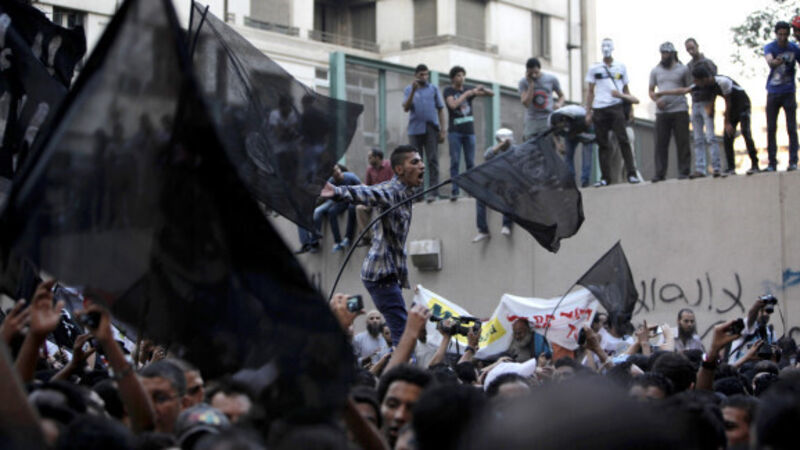American shot dead as protesters burn US consulate

A film attacking the prophet Mohammed sparked assaults on US diplomatic missions during which an American was shot dead as protesters burned the US consulate in Benghazi, Libya.
US Secretary of State Hillary Clinton confirmed the State Department officer's death today and said she had called the Libyan president to co-ordinate additional support to protect Americans there.














